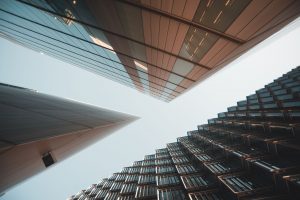Growth and internationalization
Hamburg Commercial Bank’s project finance business focuses on infrastructure and renewable energy financing. With a portfolio of EUR 4.1 billion1, it is well positioned in these promising asset classes and open to new business. Jens Thiele, Managing Director Project Finance & Corporates, talks about his business model and where he sees potential in the future.
27 January 2025 | Reading time 7 minutes

The bank is strongly positioned in the infrastructure and renewable energy segments. What sets it apart here?
Jens Thiele: We have decades of know-how in the Infrastructure & Energy segments and are very well connected here. As an industry partner, we not only look at traditional long-term financing, but we also have the expertise to successfully support more complex situations, such as construction and bridge financing for projects or acquisition financing. We are also able to offer products for the entire value chain, such as solutions for payment transactions, guarantees, capex lines or revolving credit lines. Ultimately, we take the loans onto our own books and do not place them with third parties, which demonstrates a significantly higher level of commitment to our customers’ transactions.
What has been the focus of the deals this year? Can you give some examples of successful deals?
Jens Thiele: In addition to the traditional infrastructure, our focus is on digital infrastructure and energy transformation. Among other things, we have provided financing for data centers and fiber optic networks. We have a great deal of experience in the data center sector and supported the first projects in Amsterdam as early as 2014. This year, we have again provided financing for several wind and solar parks, such as the construction financing for ABO Energy’s solar parks in Germany. We have also supported waste-to-energy projects and provided financing to Proxima, the French operator of high-speed trains. But we have also been active in traditional infrastructure financing, such as for airports and public-private partnerships.
In which countries is the bank active?
Jens Thiele: We focus on Central and Western Europe, including the UK and Scandinavia. We have also completed transactions in the US, such as the financing of a data center and an LNG terminal. We would like to do about 10% of our business in the US in the future. We always try to diversify our portfolio. This applies to asset classes, financing products, maturities and countries.
What role do renewable energies play in the portfolio?
Jens Thiele: Today, 40% of the portfolio is still made up of renewable energies, in which we are committed for the long term over the next eight years. Due to the long maturities and narrow margins, we are focusing here on acquisition financing, such as for a wind farm in England, or the construction financing for the ABO Energy solar parks mentioned earlier. We also have an offshore wind farm in Germany that will be paid out at the beginning of 2025.
We are focusing on good diversification. This applies to asset classes, financing products, maturities and countries.
Where do you see the greatest potential for growth?
Jens Thiele: I continue to see great potential in the digitalization of industry and infrastructure. This is accompanied by an increase in demand for data centers, fiber optic networks and smart meters. But I also see further growth opportunities in the area of energy transition and in waste management, i.e. the collection and processing of waste materials to generate energy from them. We are also looking at topics that could become important in the future, such as storing energy in large batteries. We are also looking at the production and distribution of hydrogen and EV charging for electric vehicles. This could lead to interesting opportunities. We want to be well prepared for this, because I only include proven technologies in the portfolio.
What are the prospects for 2025?
Jens Thiele: 2024 was a record year for us, with around 1.2 billion euros of new business and continuous growth. We also want to remain at this level in 2025. 2024 was completely free of credit defaults, which shows that we work in a very controlled manner. In a highly competitive market like infrastructure and energy, it is important to manage risks well while still achieving growth.
1As at June 30, 2024